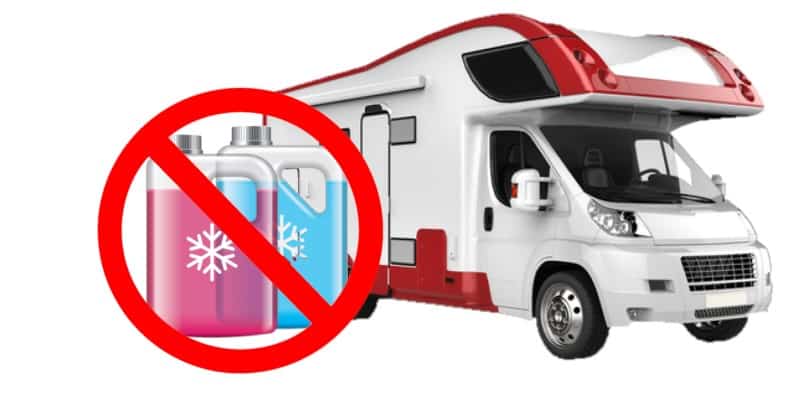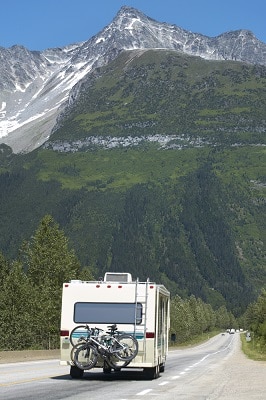
For RVers living in the coldest climates, the end of the camping season means it’s time to winterize. Winterizing an RV usually means putting antifreeze into your water lines. However, you can winterize an RV without anti-freeze. let’s find out how.
Why to Not Use Antifreeze
While using special RV antifreeze is the traditional way to keep your water lines from freezing over the winter, you need to drain it out and purge the lines come spring. The problem is, you may not get all of the antifreeze out, and even if you use non-toxic antifreeze, it’s still not a good idea to drink it.
How To Winterize Without Antifreeze
If you don’t want to use antifreeze, you can still winterize your recreational vehicle. To do that, you must get rid of every drop of water in the plumbing system. If there is no water in the lines, or very little water left, there won’t be enough water in the lines to cause them to burst, even if they do freeze.
First, you’ll need to empty your freshwater tank; if it has a drainage valve, open that. Otherwise, you’ll need to open the faucets and flush the toilet to run the remaining freshwater into the gray water tank. Next, you’ll need to empty and rinse your black and gray water tanks at an RV park or an RV dump station.
You Need a Blow-Out Plug
The next step is to attach a special RV blow-out plug to your freshwater inlet. You can get a blow-out plug at most RV supply stores, or order one online.
Keep the faucets open, so that the water can be blown out. If the faucets are closed, it will create too much pressure in the water lines.
You’ll also need an air compressor with an adjustable PSI setting, and set it to 30 PSI. Any higher, and it could damage your water lines and plumbing system. Turn on the air compressor on, and blast air through the lines for 30-second intervals, stopping every few seconds before giving it another blast of air. This will prevent stressing the water lines.
When there is no more water dripping from the faucets, you’re done. Close up the faucets, and you’ll have to dump out this last bit of water from the gray tank. There will still be a small amount of water in the lines, since there are curves and bends in the lines where water will be trapped. However, this small amount of water won’t be enough water to make the water lines burst over the winter.
Related Video:


Thank you for writing this post, we don’t have antifreeze at the moment so don’t know what to do with our car. Your article is very helpful for me.
I followed your instructions, it was a bit difficult at first but after a while of searching it also worked. Thank for your writting.